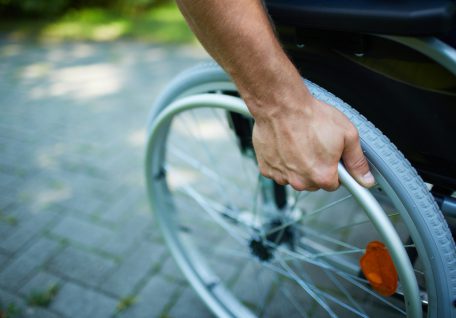You don’t grow in the gym; you grow in recovery. You also get faster, leaner and stronger whilst you recover, so it is perfectly reasonable to prioritise recovery in a training program. And recovery doesn’t mean simply drinking a protein shake, it means rest, and there is no better way to rest than to sleep.
Numerous studies have shown that increasing sleep quality and duration leads to increased performance and mental well-being. Sleep is the most important aspect of recovery.
In fact, most of us aren’t even getting enough sleep. A recent study by the Sleep Health Foundation revealed that 33-45% of Australians are experiencing poor sleeping patterns. Between work commitments and an attachment to our smartphone and Netflix, we’re simply not getting enough hours of shut-eye.
Yet sleep is an often overlooked aspect of a training program. We have such busy lives we often neglect it; getting as little as we believe we can survive on. We’re up late at night and then up early the next day. It’s strange because the vast majority of us love sleep.
The benefits of sleep for fitness
Muscle regeneration
The human growth hormone is released mostly during our sleep. In men, 60% to 70% of daily human growth hormone secretion occurs during early sleep which is typically when the deepest sleep cycles occur. Poor quality sleep can negatively impact human growth hormone levels. Therefore, good quality and lengthy sleep is when our body best repairs and grows.
Fat burning
It wouldn’t be entirely foolish to assume you’d burn more calories if you’re awake longer and asleep for less time, however, better and more efficient fat-burning occurs whilst we’re asleep. Studies have shown that people that get less than six hours sleep per night have poor resistance to insulin. If you cannot control insulin, you may find you struggle to lose fat.
Recharging the brain
Adenosine is a neurotransmitter that produces ATP, the energy-storage molecule that powers most of the biochemical reaction inside cells. When we are awake the levels of adenosine increase in the brain, which has been shown to decrease alertness, and suggests that the brain is tired. When we sleep, these levels decline.
Resting the brain has obvious implications for fitness. Motivation levels are highest when you’re the most alert. Therefore, the more rested you are the more alert you will be and the more motivation you’ll have to exercise.
Ways to increase sleep quality and duration
Foundation Sleep recommends that adults who are exercising regularly should be getting between 8 to 10 hours sleep per night, plus a 30-minute nap between 2 and 4pm. This is undoubtedly going to be difficult for those of us who work full-time, but it can be achieved with a bit of commitment. You may be able to find a sofa in your office to nap on at lunch or practice sleeping at your desk.
As well as sleep duration, the quality of that sleep is just as important. Sleep quality and sleep phase have a big impact on the regenerative qualities of sleep. To improve your sleep quality, you should try to reduce disturbances, this can be done through wearing earplugs and sleeping in a dark and cool room.
Having a good routine leading up to sleep is also important. Try not to look at any screens in the hour leading up to sleep. It can even be a good idea to buy a physical alarm clock, if you don’t already have one, and leave your phone in another room. Taking a cool shower can also help bring down your body temperature so relaxing becomes easier. You should also avoid caffeine after noon and alcohol in the evenings, as this can affect sleep in a negative way.
Working out late into the evening can also make sleep more elusive for some. If you find that a late night gym session has you all fired up, and makes sleeping more difficult, try moving your gym sessions to the morning. You can then try lower intensity exercises such as stretching, yoga and foam rolling to finish up your day.
Measuring your sleep quality
These days there are many tools you can use to measure and track your sleep. If you’re strict with your phone use, you can use apps on your phone like Sleep Cycle that can measure your movement at night, and analyse sleep quality. You can then experiment with what works for you by trying different routines. For example, I found that red wine helped me drop off quickly, but my sleep quality reduced. I also found that avoiding screens and reading a book before bed, instead of my Facebook feed, helped both my duration and quality of sleep.
Conclusion
Make sleep a priority, as much as you make working out a priority. Try to build a routine that works for you, as well as experimenting with way to improve the quality and length of your sleep. If you can improve your sleep, you’ll find you recovery more quickly and get better results from your training. This is also something to pass onto your clients, they’ll start to see better results and you’ll be really improving their health.
If you’re not a personal trainer, and you’re looking to help others reach their fitness goals, take at look at Australian Fitness Academy’s range of courses to get your health and fitness career on the road.





